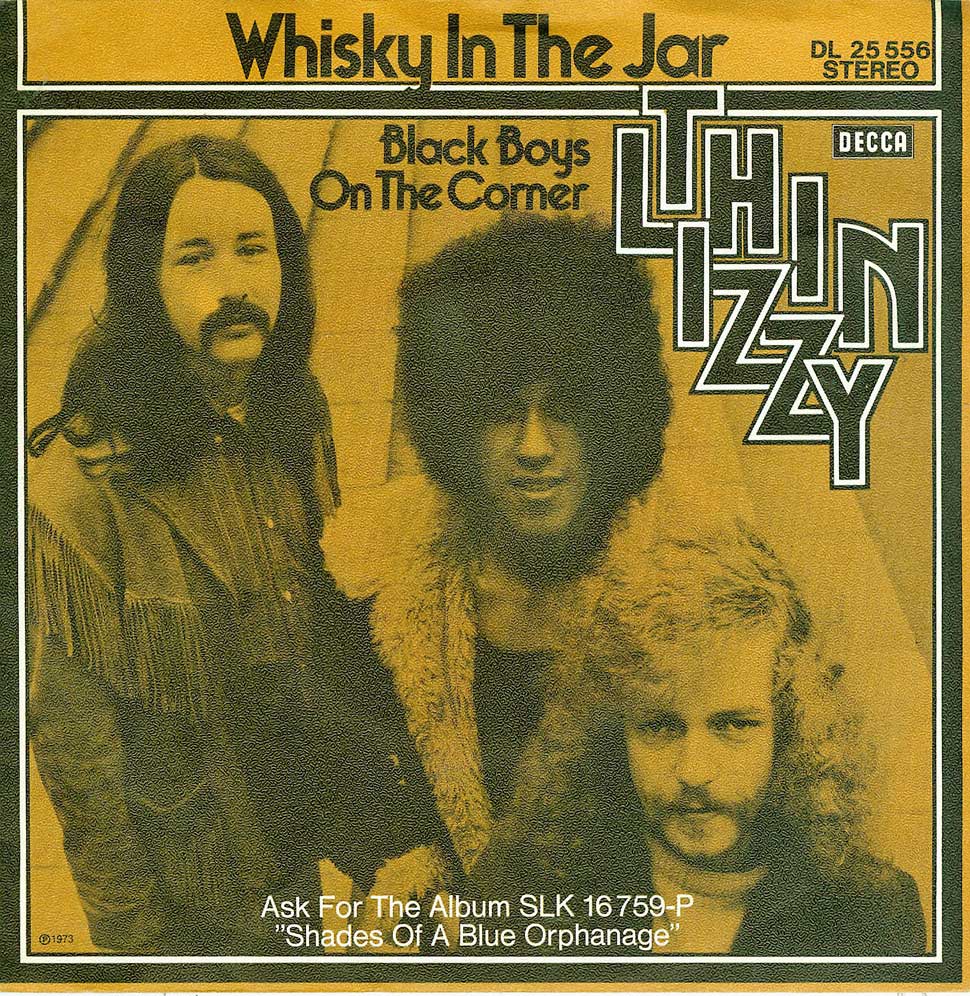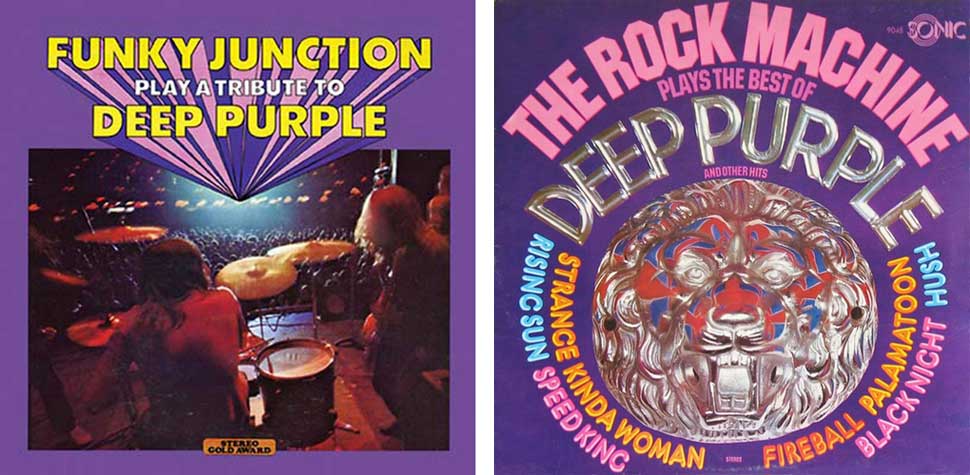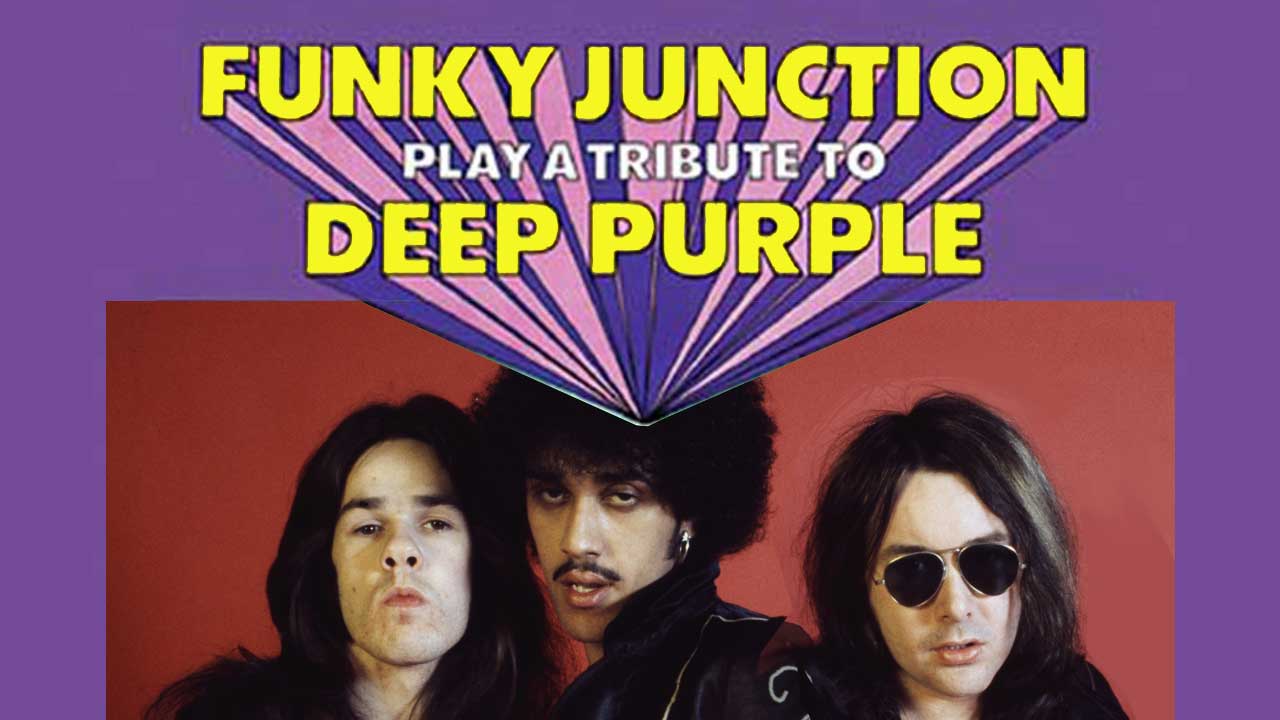Back in 1972, Phil Lynott was not happy. Thin Lizzy's first albums for Decca – 1971's self-titled debut and the following year's Shades of a Blue Orphanage – had both been commercial flops, and the label was about to drop them. One more single, and that would be it.
But there was hope. Band leader Lynott had written a song he was certain could provide a hit and lift the malaise, a Hendrix-imbued funk-rock groover called Black Boys On The Corner.
“Phil had written this great song especially for the single, which he saw as part Hendrix, part commercial pop tune,” remembered drummer Brian Downey. “I think it was the first song he’d written about being black, and it was important to him."
Decca weren't convinced, and relegated Black Boys to the B-side of the single, due for release in November. Instead, the label elevated the band's cover of traditional Irish folk song Whiskey In The Jar to the A-side. Phil Lynott was furious.
“He’d put so much into Black Boys, seeing it as the band’s first big statement single. But we were in no position to argue," said band manager Ted Carroll. "Lizzy were really in debt at the time and things were getting desperate. Decca wanted Whiskey as the A-side, so we went with it, and the band began playing it live.”

The band were desperate to do something that might finally bring in some income, so they accepted £1,000 to record an album of Deep Purple covers for Stereo Gold Award, an imprint set up by budget label entrepreneur David L. Miller, whose cheaply recorded 101 Strings compilations still clutter charity shops 60 years on.
Miller had developed a business model that was as ruthless as it was efficient, hiring up-and-coming musicians to re-record popular songs and releasing them as albums an unwary shopper might think was original material. Typical was an album of Jimi Hendrix songs credited to "The Purple Fox." As Miller himself once proclaimed, "We are not in the recording business, we are in the plastics business."
Recording at De Lane Lea studios in central London – where Deep Purple recorded In Rock and Fireball – Lizzy brought in two extra musicians for the sessions from another Irish band, Elmer Fudd, who'd begun life a couple of years earlier as Portrait before changing their name in 1971.
“Phil saw himself as more of a Rod Stewart than an Ian Gillan,” said Downey, “so he did the bass and some backing vocals, and Ted got in Benny White, who was like a copycat Gillan.” The other member of Elmer Fudd to join the action was keyboardist Dave ‘Mojo’ Lennox, who'd go on to play with the likes of Al Green, Blodwyn Pig, Ginger Baker, the Stylistics, and Alvin Stardust.
The five musicians recorded four Deep Purple covers: Fireball, Black Night, Strange Kind Of Woman and Speed King. They also recorded a version of Joe South's Hush, a hit for Purple in 1968. Then there was the "original material", songs credited to Leo Muller, a.k.a. David L. Miller, ensuring that the label boss received songwriting royalties on top of everything else. These included Dan, an improvised version of the standard Danny Boy, and Rising Sun, a cover of – yep, you guessed it – House Of The Rising Sun.
The album went on sale at UK High Street chain Woolworths in January 1973, priced at just 50p and credited to Funky Junction. On the cover was a live shot of another Irish band entirely, Hard Stuff, who were also managed by Carroll and included two former Atomic Rooster members amongst their ranks, John Du Cann and Paul Hammond. In Germany, the release was credited to another act altogether, The Rock Machine, named so presumably to capitalise on the success of the iconic 1968 sampler The Rock Machine Turns You On.

“It was an embarrassment,” said Downey. “But we were desperate for the cash. It got us out of a jam so we could carry on going as Thin Lizzy."
They did a solid, professional job. Downey’s drumming on Fireball captures much of Ian Paice's wildfire energy, Lennox does a convincing Jon Lord, and Speed King rattles along nicely, albeit not with the same breakneck ferocity of the original. It's all a little meeker than it should be, but it's certainly not an embarrassment.
Even the originals are worth exploring, especially for guitarist Eric Bell's contributions: a Hendrixy take on Dan/Danny Boy, and on the psychedelic Palamatoon, a somewhat cheesy, Gaelic-tinged instrumental powered by squelching synths that's redeemed by a decent guitar solo.
It wasn't the last the world would hear from Funky Junction. Three years later they'd contribute two tracks to Especially For You..., a Stereo Gold Award compilation credited to Gladys Knight & The Pips. But in true David L. Miller tradition, the album featured neither Gladys Knight nor her Pips, and none of the members of Thin Lizzy were involved.

